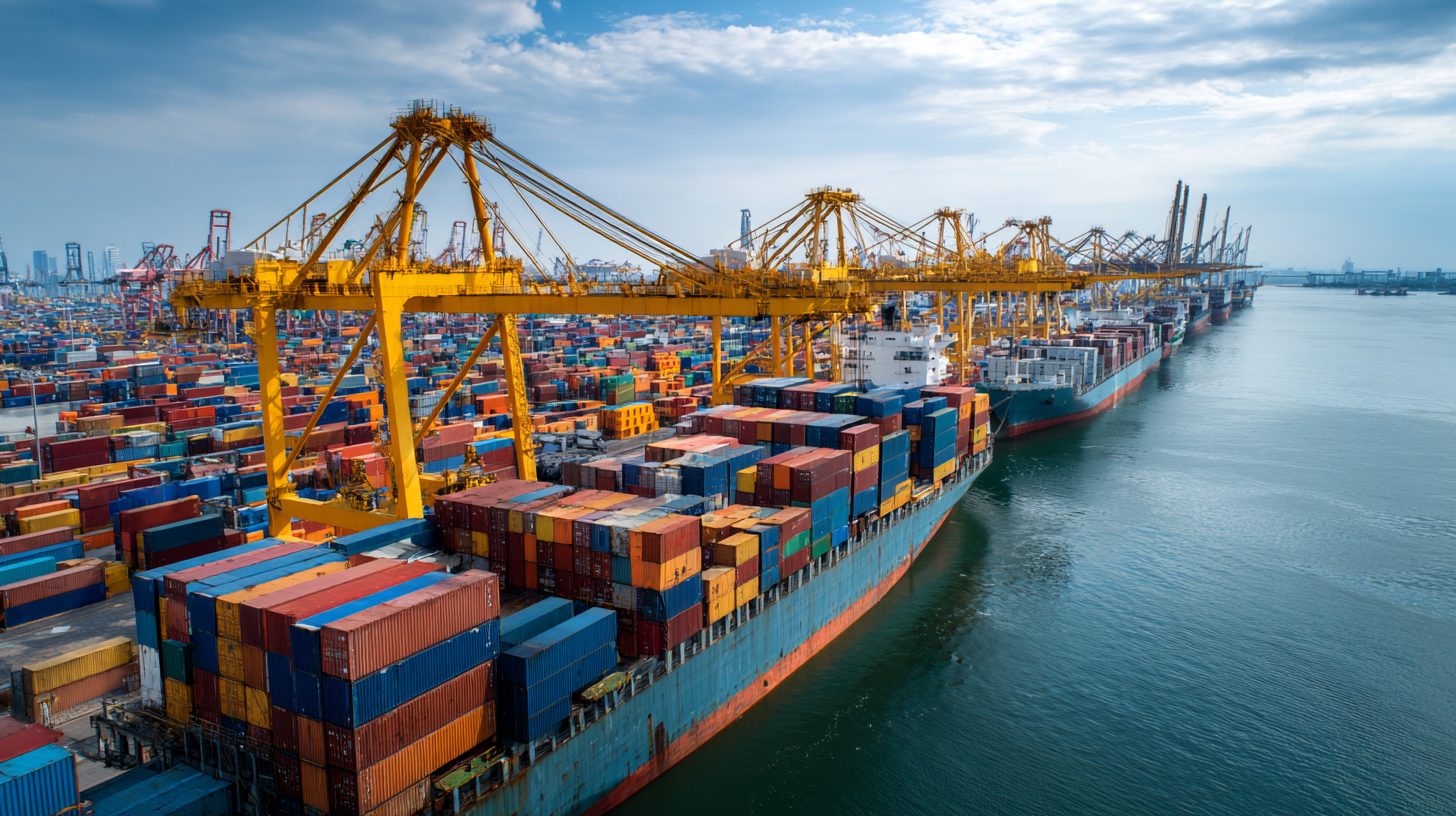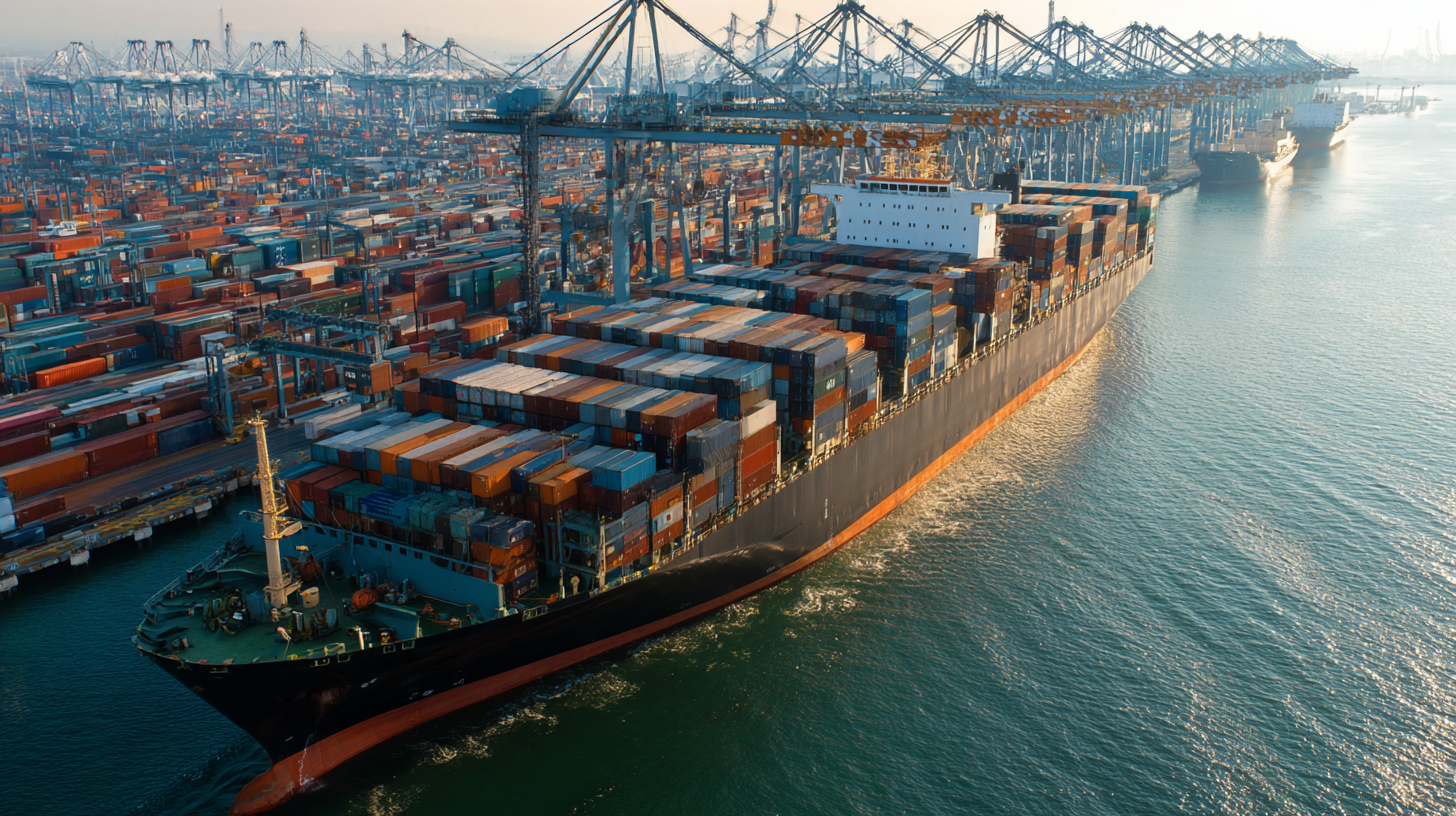Navigating Global Import Export Certifications for the Best Commercial Windows Buying Guide
As the global demand for energy-efficient and aesthetically pleasing structures continues to rise, the commercial windows market is projected to reach approximately $40 billion by 2027, reflecting a significant CAGR of 5.7% from 2020 to 2027, according to a recent report by Fortune Business Insights. Navigating the landscape of global import and export certifications is crucial for manufacturers and retailers aiming to thrive in this competitive market. Understanding the intricacies of compliance with international standards not only streamlines the buying process but also ensures that the products meet safety, performance, and sustainability benchmarks. This blog will guide readers through the top strategies for securing the best commercial windows, emphasizing the importance of certifications that assure quality and reliability in an increasingly globalized economy.

Understanding the Importance of Import Export Certifications in Global Trade
Understanding the significance of import export certifications is crucial for businesses engaged in global trade, especially in the commercial windows industry. These certifications serve as a formal recognition that products meet specific safety, quality, and environmental standards mandated by different countries. This is particularly important in a market where regulations can vary greatly from one region to another, ensuring that your products not only comply with local laws but also instill confidence among buyers regarding their quality.
Navigating these certifications allows businesses to streamline their import and export processes, reducing the risk of delays and regulatory fines. For example, obtaining necessary certifications not only helps in meeting compliance requirements but also opens doors to a wider market by making products eligible for export to countries that prioritize safety and quality standards. Consequently, an informed approach to acquiring these certifications enhances a company's reputation and competitiveness in the global market, ultimately leading to better business opportunities and customer trust.
Key Certifications Required for Commercial Windows Manufacturing and Export
When considering the purchase of commercial windows, understanding the necessary certifications is crucial for ensuring product quality and compliance with international standards. Key certifications such as the ISO 9001 for quality management systems and CE marking for compliance with European health, safety, and environmental protection standards serve as benchmarks for manufacturers and importers alike. These certifications not only facilitate smoother trade but also assure buyers of the product's reliability and durability.
Tip: Always request certification documents before finalizing any purchase. This step ensures that you are investing in windows that meet both safety standards and your specific project requirements.
In addition to ISO and CE certifications, look for Energy Star ratings when evaluating commercial windows. This label indicates that the windows meet energy efficiency standards, which can lead to significant cost savings over time. Furthermore, local certifications may also apply, depending on the installation region, so it’s advantageous to familiarize yourself with any additional requirements specific to your locale.
Tip: Consult with your supplier about how to verify these certifications. This will help prevent any potential issues and maintain the integrity of your project.
Navigating Global Import Export Certifications for Commercial Windows
Top Global Manufacturers of Commercial Windows and Their Certification Standards
When it comes to purchasing commercial windows, understanding the certification standards set by top global manufacturers is crucial. These certifications not only ensure compliance with safety and performance standards but also highlight the manufacturer’s commitment to sustainability. As the global market evolves, particularly with nations like India becoming more competitive in trade, being informed about the certification processes can significantly impact your purchasing decisions.
**Tips:** When selecting commercial windows, consider asking for the manufacturer's certification details. This will provide insight into the quality and safety protocols they adhere to. Additionally, look for certifications that emphasize sustainability, as this can indicate a commitment to environmentally friendly practices.
It's essential to familiarize yourself with the various certifications that indicate a manufacturer's credibility. The S&P Global Corporate Sustainability Assessment, for instance, reflects a company's approach to integrating sustainability into its business model. By prioritizing manufacturers with recognized certifications, you can make informed choices that align with global standards and your own sustainability goals.

Navigating Compliance: Steps to Ensure Your Export Meets International Standards
When diving into the world of global imports and exports, compliance with international standards is paramount for ensuring that your products, like commercial windows, reach their intended markets without issues. The process begins with understanding the specific certifications required by different countries, which can vary widely. Each market has its own regulations that dictate everything from manufacturing standards to packaging and labeling requirements. To navigate these complexities, businesses must start by conducting thorough research into the specific compliance needs of the target market.
Once the primary requirements are identified, businesses should engage with certification bodies and industry experts to streamline the certification process. This step often includes submitting detailed documentation on product specifications and quality control measures, ensuring that all materials and manufacturing processes align with the international standards. Additionally, staying updated on the regulatory landscape is essential, as changes can occur frequently. Regular audits and inspections can help maintain compliance over time, safeguarding your business’s reputation while facilitating smoother transactions across borders.
Understanding and adhering to these crucial steps can significantly enhance your prospects in the competitive global market.
Tips for Streamlining the Import Process for Commercial Windows in Different Markets
When navigating the import process for commercial windows across various markets, understanding certification requirements is paramount. According to a report by the International Trade Centre, around 30% of delays in cross-border trade can be traced back to compliance and certification issues. This emphasizes the need for businesses to be well-versed in the specific regulations of each target market, including environmental standards and safety certifications that may vary significantly by country.

Moreover, streamlining the import process involves leveraging technology and established trade agreements. A study by the World Trade Organization highlights that businesses that utilize digital platforms for documentation can reduce processing times by up to 50%. By forging relationships with local import authorities and staying informed about bilateral trade agreements, companies can navigate complex import regulations more efficiently, ensuring that their commercial windows meet all necessary compliance standards while minimizing potential delays.
